SBI KYC Form – In today’s digital era, Know Your Customer (KYC) compliance has become an essential requirement for financial institutions, including State Bank of India (SBI). KYC forms are crucial documents that enable banks to verify the identity of their customers and ensure the legitimacy of their transactions. If you’re looking to open an account or update your KYC details with SBI, this blog article will serve as your ultimate guide.
Apart from filling State Bank of India KYC form, here we have given SBI eKYC form download link, using which you can download in mobile phone laptop computer, take a print out or can ask for this form from your nearest SBI branch. After that you need to fill the form, here we have tried to tell you in detail.If you wish, you can follow the steps given below to fill this SBI KYC application form
SBI atm card application form pdf download
State Bank KYC form download
If you have an account in State Bank of India and are being asked to do KYC by the bank or KYC is required in SBI bank account, under any circumstances if you want to do SBI KYC, you need KYC form. Download this KYC form which we have given below and whatever necessary information is being sought from you, fill all the information and submit it.
| form name | State Bank of India KYC form |
| Form Uses | KYC for Individual customer |
| Beneficiary. | sbi Bank Customer |
| Language. | english |
| type | |
| pdf size | 2.4MB |
| pdf page no | 2 |
| source/credit | sbi Official website |
| Official website | onlinesbi.com |
Download
Documents Required for SBI KYC
When completing the KYC (Know Your Customer) process with the State Bank of India (SBI), you will typically need to provide the following documents:
- Identity Proof Documents:
- Aadhaar Card
- Passport
- Voter ID Card
- PAN Card (Permanent Account Number)
- Driving License
- NREGA Job Card
- Any other government-issued identity card
- Address Proof Documents:
- Aadhaar Card (if it contains the current address)
- Passport
- Voter ID Card
- Driving License
- Utility Bills (electricity bill, water bill, gas bill, etc.)
- Bank Statements
- Rent Agreement
- Registered Sale or Lease Agreement
- Ration Card
- Any other government-issued address proof document
- Recent Passport-Sized Photographs:
- Typically, two or more recent passport-sized photographs are required for KYC purposes. The exact number may vary based on SBI’s specific requirements.
| It’s important to note that the above documents are general guidelines, and the specific requirements may vary depending on your location and the nature of the account or service you are availing from SBI. SBI may also request additional documents or alternative forms of proof in certain cases. Additionally, it’s always advisable to check the latest guidelines and requirements provided by SBI or consult with the bank directly to ensure you have the accurate and up-to-date list of documents required for the SBI KYC process. |
Guide to Filling out SBI KYC Form
Here is a step-by-step guide to help you fill out the SBI KYC (Know Your Customer) form accurately:
Step 1: Obtain the SBI KYC Form:
- Visit the official website of State Bank of India (SBI) or any SBI branch to obtain the KYC form.
- You can also inquire at the customer service desk or approach a bank representative for assistance in obtaining the form.
Step 2: Basic Information Section:
- Fill in your personal details accurately, including your full name, date of birth, gender, and contact information.
- Provide your SBI account number (if applicable).
Step 3: Address Details Section:
- Fill in your current residential address details, including the house number, street name, locality, city, state, and PIN code.
- If your permanent address is different from your current address, provide the required details in the designated fields.
Step 4: Identification Details Section:
- Select and provide the type of identification document you are submitting (e.g., Aadhaar Card, Passport, PAN Card, etc.).
- Enter the document number and its validity details.
- If you have more than one identification document, provide the required information for each document.
Step 5: Financial Details Section:
- Enter your occupation details, such as your employment status and employer’s name (if applicable).
- Provide your annual income details.
- If you have existing bank accounts, mention the bank name, account number, and your relationship with the bank.
Step 6: Consent and Declaration Section:
- Read the terms and conditions carefully.
- Sign and date the form to indicate your consent and agreement with the provided information.
Step 7: Attach Required Documents:
- Ensure that you have attached all the necessary supporting documents as specified by SBI for KYC verification.
- Common documents include proof of identity, proof of address, and recent passport-sized photographs.
Step 8: Review and Submission:
- Double-check all the filled-in information and attached documents for accuracy and completeness.
- Visit your nearest SBI branch or the designated submission point to submit the completed KYC form and supporting documents.
- You may need to provide the originals for verification purposes
It is important to note that the specific sections and fields in the SBI KYC form may vary depending on the version of the form and any updates made by SBI. Therefore, it is recommended to carefully follow the instructions provided on the form itself and seek assistance from SBI staff if needed.
Remember to keep a copy of the filled-in form and any supporting documents for your records.
What is KYC ?
SBI KYC refers to the Know Your Customer process followed by the State Bank of India (SBI). KYC is a mandatory regulatory requirement that financial institutions, including SBI, must comply with to verify the identity and address of their customers. The objective of KYC is to prevent money laundering, terrorist financing, fraud, and other illegal activities by ensuring the legitimacy and authenticity of customer accounts and transactions.
The SBI KYC process involves collecting and verifying certain documents and information from customers. This typically includes proof of identity (such as Aadhaar card, PAN card, passport, etc.), proof of address (such as utility bills, bank statements, etc.), and recent passport-sized photographs. The collected information and documents are then verified by the bank to establish the customer’s identity and address.
Customers are required to complete the KYC process when opening a new account with SBI, as well as when updating their existing account information. Failure to comply with KYC requirements may result in limitations on account operations or even closure of the account.
It is important to note that KYC requirements may vary from country to country and can be subject to regulatory changes. Therefore, it is always advisable to check with the specific guidelines and requirements provided by SBI or consult with the bank directly to ensure compliance with the latest KYC regulations.
Why is KYC important for banks?
KYC (Know Your Customer) is important for banks due to the following reasons:
- Compliance with Regulatory Requirements: KYC is a legal and regulatory obligation for banks and financial institutions in most countries. Governments and regulatory bodies enforce KYC regulations to combat money laundering, terrorist financing, fraud, and other financial crimes. Banks are required to implement KYC measures to ensure they are not inadvertently facilitating illegal activities.
- Mitigating Risks: KYC helps banks mitigate risks associated with financial crimes. By verifying the identity of customers and understanding their financial activities, banks can assess the potential risks involved in a customer relationship. KYC procedures enable banks to identify suspicious transactions, unusual account activities, or customers engaging in high-risk activities, which helps in preventing fraud and protecting the integrity of the banking system.
- Building Customer Trust: KYC processes enhance the credibility and trustworthiness of banks in the eyes of customers. By implementing robust KYC measures, banks demonstrate their commitment to customer security and regulatory compliance. Customers feel more confident and secure knowing that their financial institution has taken steps to verify their identity and protect their interests.
- Protecting Against Identity Theft and Fraud: KYC acts as a safeguard against identity theft and fraudulent activities. By verifying the identity of customers through reliable documentation and authentication processes, banks can ensure that individuals opening accounts or conducting transactions are who they claim to be. This helps prevent criminals from using stolen identities or engaging in fraudulent activities within the banking system.
- Facilitating Financial Inclusion: KYC processes also play a role in promoting financial inclusion. By identifying and verifying the identities of customers, banks can extend their services to individuals who may not have traditional identification documents. This enables marginalized or unbanked populations to access formal financial services, fostering economic growth and inclusion.
In summary, KYC is important for banks to comply with regulations, mitigate risks, build customer trust, protect against financial crimes, and facilitate financial inclusion. By implementing strong KYC measures, banks can maintain the integrity of the financial system and provide secure and reliable services to their customers.
Conclusion
Completing the SBI KYC form accurately is crucial for a smooth banking experience with State Bank of India. By adhering to the KYC guidelines and providing the necessary documents, you can ensure the security of your financial transactions while complying with regulatory requirements. This comprehensive guide has equipped you with the knowledge and step-by-step instructions to complete the SBI KYC form hassle-free. Take the necessary steps today to update your KYC details and enjoy seamless banking services with SBI.
Note: This blog article is for informational purposes only and should not be considered as legal or financial advice. It is always recommended to consult with official sources or SBI representatives for the most up-to-date and accurate information regarding the KYC process.
FAQs about SBI KYC
What is KYC and why is it required by SBI?
KYC refers to the process of verifying the identity and address of customers. SBI requires KYC compliance to ensure the legitimacy of customer accounts, prevent financial crimes, and comply with regulatory obligations imposed by authorities
What documents are required for SBI KYC?
The documents required for SBI KYC typically include proof of identity (such as Aadhaar Card, Passport, PAN Card), proof of address (such as utility bills, bank statements), and recent passport-sized photographs. The specific documents may vary based on individual circumstances and SBI’s requirements
Can I complete the SBI KYC process online?
Yes, SBI provides online facilities to update KYC details for certain services. You can check SBI’s official website or internet banking portal for more information on online KYC submission
What happens if I fail to complete the KYC process with SBI?
Failure to complete the KYC process with SBI may result in limitations on your account operations. SBI may freeze certain transactions, impose restrictions, or even close the account until the KYC requirements are fulfilled
Do I need to complete the KYC process for every transaction with SBI?
Once you have completed the initial KYC process with SBI, it generally remains valid for subsequent transactions. However, periodic updates or re-verification may be required based on SBI’s policies or regulatory requirements
Can I use the same KYC form for multiple accounts in SBI?
In most cases, you can use the same KYC form for multiple accounts within SBI. However, additional documentation may be required for each specific account, such as account-specific application forms or account-opening mandates. It is recommended to confirm the requirements with SBI based on the type of accounts you wish to open.
How long does the KYC verification process take?
The time required for KYC verification by SBI can vary. It depends on factors such as the volume of applications, accuracy of provided documents, and the internal processes of the bank. It is advisable to contact SBI directly for information on the estimated time for KYC verification


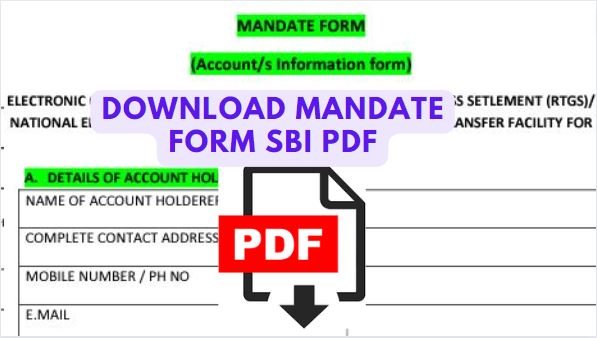
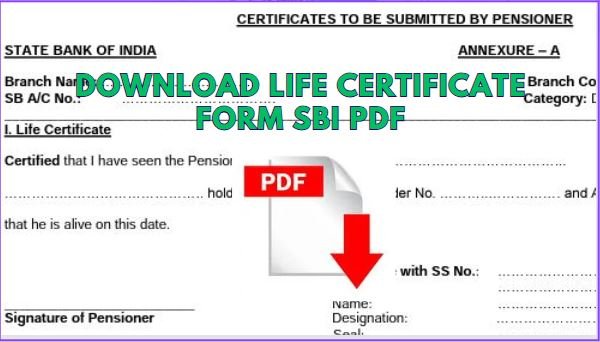
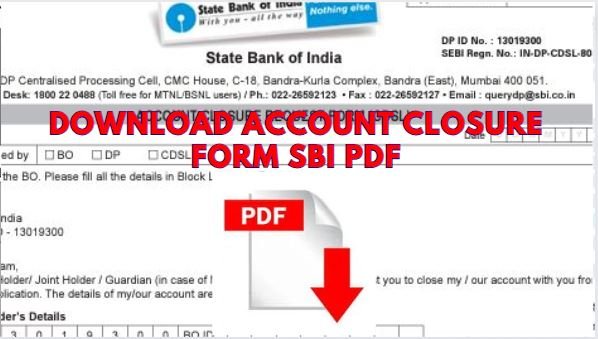
![[PDF] saving account opening form sbi download [PDF] saving account opening form sbi download](https://pdfformdownload.co.in/wp-content/uploads/2023/09/PDF-saving-account-opening-form-sbi-download-b.jpg)
![[PDF] deposit form sbi download [PDF] deposit form sbi download](https://pdfformdownload.co.in/wp-content/uploads/2023/09/deposit-form-sbi-download.jpg)
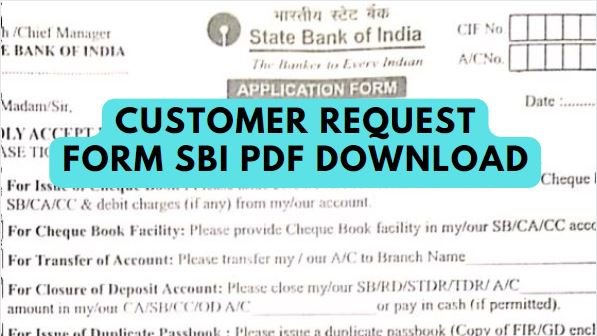
![[pdf] download fixed deposit form sbi [pdf] download fixed deposit form sbi](https://pdfformdownload.co.in/wp-content/uploads/2023/09/pdf-download-fixed-deposit-form-sbi-t.jpg)
![[PDF] kyc updation form sbi download [PDF] kyc updation form sbi download](https://pdfformdownload.co.in/wp-content/uploads/2023/09/download-sbi-kyc-updation-form-pdf-v.jpg)
![[PDF] withdrawal form sbi download [PDF] withdrawal form sbi download](https://pdfformdownload.co.in/wp-content/uploads/2023/09/withdrawal-form-sbi-download-s.jpg)

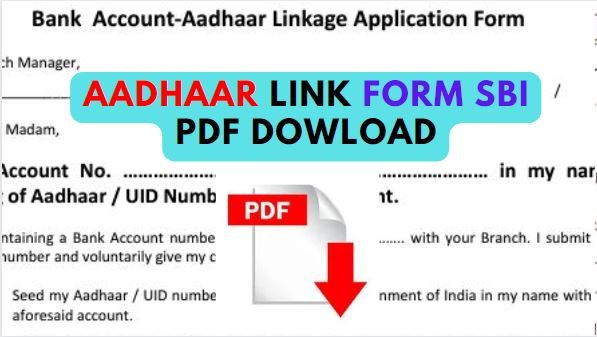
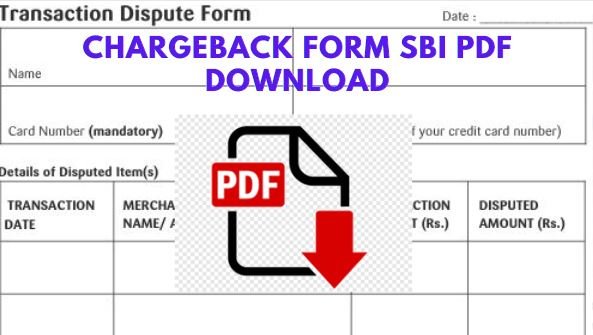
9 thoughts on “{PDF} SBI KYC Form download & Everything You Need to Know”